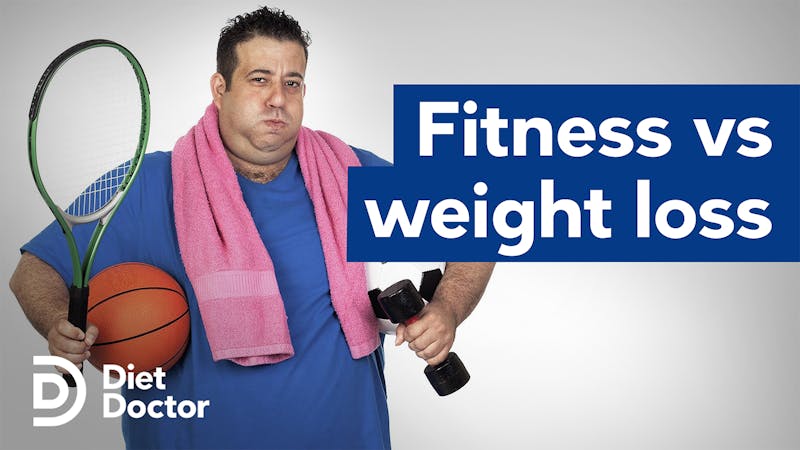Can athletes be fit but unhealthy?
You bet! And it may be more common among athletes who are fueling their workouts with highly processed, sugary carbs such as sports drinks and sports gels.
This is exactly what Diet Doctor Medical Director, Dr. Bret Scher, MD, delves into in this week’s DD News video. The topic of unhealthy athletes is one that’s close to his heart because he used to be a carb-loading triathlete.
“Everybody thought I was the healthiest person in the world and so did I. I thought I was doing so much to improve my health as I’m guzzling Gatorade and pounding the goos [sports gels] and eating nothing but bananas and bagels just to carb, carb, carb as I’m doing these races, and the night before fueling up with pasta, because that’s what I was supposed to do,” Dr. Scher says. “But boy, was I on a crash course for trouble.”
Dr. Scher discusses a paper in Sports Medicine by two authors: renowned Arizona fitness coach, author, and kinesiologist Phil Maffetone; and exercise physiologist Paul Laursen, of the Sports Performance Research Institute New Zealand.
Sports Medicine Open: Athletes: Fit but unhealthy?
The publication’s authors make three key points:
- Fitness and health can be defined separately. Fitness describes the ability to perform a given exercise task, and health explains a person’s state of well-being, where physiological systems work in harmony.
- Too many athletes are fit but unhealthy.
- Excessively high training intensity or training volume and/or excess consumption of processed or refined dietary carbohydrates can contribute to reduced health in athletes and even impair performance.
Dr. Scher says the paper brings to the forefront that some public figures at the peak of endurance, physical activity, and physical accomplishments are “developing metabolic dysfunction, metabolic syndrome, metabolic disease that you would think would be impossible for somebody exercising so much … but it’s actually fairly common.”
Dr. Scher notes that the authors point out two mechanisms that come together to produce poor health. The first is overtraining, which can lead to inflammation, reactive oxygen species, and hormonal stress.
“But the other side of it goes to high-glycemic, highly processed and refined foods, which is poor nutrition [that] leads to hyperinsulinemia, and can lead to increased inflammation,” says Dr. Scher.
Dr. Scher adds: “What you really want to be doing, if you can, is burning fat, not burning carbohydrates. You want to improve your fat oxidation and your ability to burn fat for fuel. Because no matter how fit we are, we have plenty of fat stores that we can burn.”
And that’s going to be the healthier approach that’s going to prevent hyperinsulinemia and metabolic dysfunction, Dr. Scher notes.
Each week, Dr. Scher takes a scientific study in the fields of nutrition, exercise, health, or disease and carefully analyses the researchers’ methods and findings. In doing so, he helps you better understand how to judge the quality of various research papers and make informed decisions about your own health and wellness.
You can find more of Dr. Scher’s weekly news videos on the DD News Youtube channel. Subscribe to the feed so that you don’t miss any of his videos.


